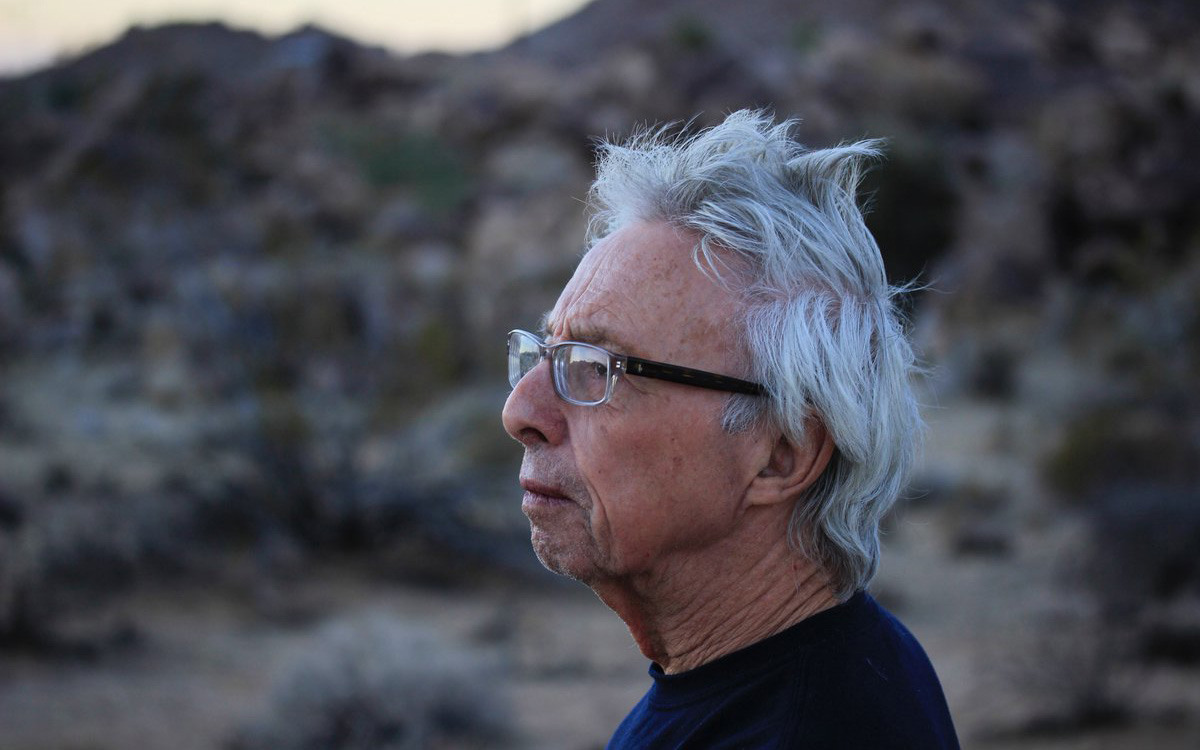Harold Budd, 1936-2020

Earlier today, Robin Guthrie announced on his Facebook page that his friend and longtime collaborator, noted ambient composer and pianist Harold Budd, had died at the age of 84.
A lot to digest. Shared a lot with Harold since we were young, since he was sick, shared a lot with harold for the last 35 years, period. Feeling empty, shattered lost and unprepared for this, as do my wife Florence and girls Violette and Lucy Belle. All my best to Elise, Terrance, Hugo and all the family. His last words to me were ‘adios amigo’… They always were.. He left a very large ‘harold budd’ shaped hole whichever way we turn…
Harold Budd is best known for his lush, atmospheric style of playing the piano, which he termed “soft pedal.” Although his compositions are often sparse and minimal, the individual notes are bathed in so much delay and sustain that they seem as vast and endless as the Mojave Desert in which Budd grew up — and yet, his music never loses any sense of intimacy, elegance, or warmth.
Although he began composing music in the early ’60s, Budd’s first album, The Oak of the Golden Dreams, wasn’t released until 1971, followed by the Brian Eno-produced The Pavilion of Dreams in 1978. Thus began a prolific career that found Budd releasing numerous solo albums alongside collaborations with Eno (1980’s Ambient 2: The Plateaux of Mirror, 1984’s The Pearl), Cocteau Twins (1986’s The Moon and the Melodies), and Guthrie (2007’s After the Night Falls, 2011’s Bordeaux), to name a few of the people with whom he worked. (Rolling Stone has a more in-depth overview of Budd’s musical career, and confirmed that Budd’s death was due to coronavirus-related complications.)
Harold Budd’s final album was another collaboration with Guthrie titled Another Flower that was released just last week by Darla Records.
While many will point to Budd’s collaborations with Eno, or solo albums like 1988’s The White Arcades and 2004’s Avalon Sutra — and understandably so — some of my favorite Harold Budd compositions can be heard on Translucence / Drift Music, his 2003 collaboration with John Foxx. Songs like “Subtext,” “Momentary Architecture,” and “A Change in the Weather” are — to quote my review — “required listening material for fans of elegant, serene ambient music.”
Various individuals have since paid tribute to Budd on social media, including Ambient Church (“He left behind an endless treasure trove of unimaginably beautiful music”), William Basinski, critic Glenn Kenny (“[a] quietly visionary composer and musician”), Oneohtrix Point Never’s Daniel Lopatin, Simon Raymonde (“a lovely lovely gentle man”), and Jah Wobble (“one of the deepest nicest people I have come across”).